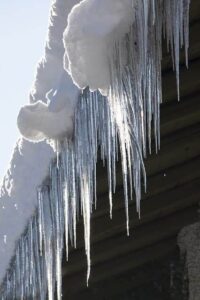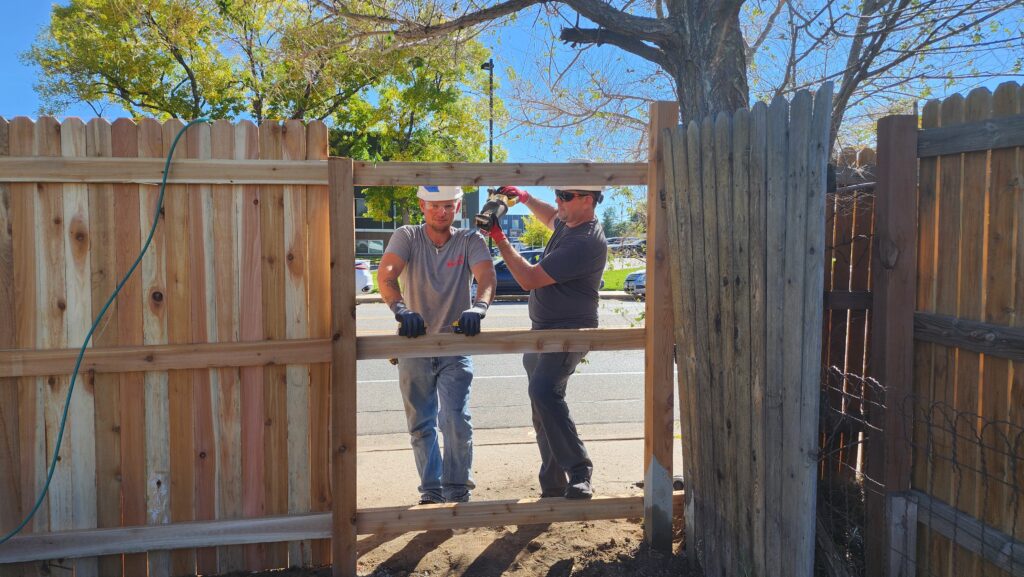
Damage to Roofs Is All Too Common in Winter
While winter may seem far off, the snow, ice, and freezing temperatures we face will be here before you know it. And as any Denver roofer can tell you, winter weather can deal damage to roofs in a wide variety of ways.
Here at Elite Roofing & Solar, our goal is to help homeowners protect their homes year-round by ensuring their roofs will last through the winter. If your roof was damaged during the previous storm season, now is the time to complete a roof repair or roof replacement before winter sets in. Winter can damage your roof in many ways—and the results will be even worse if your roof is already weakened.
We’re sharing the most common sources of winter damage to roofs and what you can do to protect your property.
Ice Dam Formation
Ice dams form when warm air from inside a structure causes shingles to warm and snow to melt. As the melt drips to the colder edges of the roof, it again freezes, resulting in a large formation of ice called a dam.
During this process, snowmelt can leak under shingles and seep into your home through weak spots, such as damage left by summer hail. But in addition to the threat to your roof, ice dams also create a dangerous situation for you and your family. These massive formations can weigh hundreds or even thousands of pounds, and they may fall from your roof suddenly when the weather warms again.
Heavy Snow Accumulation
The sheer weight of snow accumulation on a roof can prove dangerous. Wet snow and snowdrifts are typically the culprits. When the weight becomes too much a roof can begin to leak, creak, and even sag.
If you found yourself worrying about the compounding weight of snowfall on your roof last winter, it might be a good idea to get ahead of the problem before this winter hits. Investing in a roof rake can be a good idea, as these can be used to safely remove snow before accumulation becomes overwhelming.
Freezing Water & Temperature Fluctuations
Winter is often a season of extremes, and temperature swings can often damage a roof. For starters, water freezing anywhere on your roof can cause damage. Water expands as it freezes, and this can pry apart shingles or make existing cracks significantly worse. In addition, if your drainage system is clogged or otherwise failing to remove water quickly enough, water can freeze within gutters and downspouts and cause major damage.
Temperature swings from night to day or throughout the week can also cause damage to roofs during the winter. Warmer and cooler temperatures cause the expansion and contraction of roofing materials, and while roofing products are designed for durability, this will eventually take a toll.
Poor Ventilation & Attic Condensation
As your roof piles with snow and ice dams form, there is often another issue lurking just below the surface. Your attic ceiling may very well be covered with excessive moisture from condensation. This buildup of condensation can compromise the structure of your roof and lead to mold and even rotting wood.
Most often, attic condensation occurs as a result of inadequate roof ventilation. While you may think your home should be airtight, the right amount of ventilation is crucial in regulating the temperature of your roof and allowing airflow to prevent condensation and moisture accumulation.
The Key to Minimizing Winter Damage to Roofs? Scheduling a Pre-Winter Inspection
Winter can damage roofs in a variety of ways, but virtually all of these types of damage can be mitigated or minimized if your roof is currently in excellent condition. For example, assessing your ventilation system can prevent ice dams; cleaning gutters and downspouts can prevent damage from freezing; and addressing hail damage will minimize cracked shingles that would otherwise create an opportunity for leaks.
This means the best way to prevent damage to your roof in the winter is to start now with a roof inspection. At Elite Roofing & Solar in Denver, we provide thorough diagnostic roof inspections that will ensure your roof is ready for winter conditions. There’s still time to schedule yours! Contact us to book an inspection.







